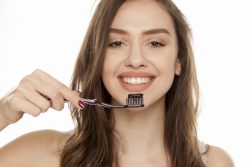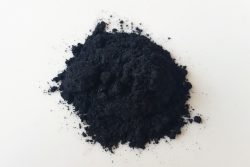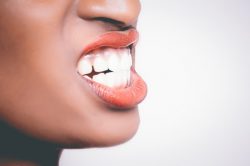
Activated charcoal is all the rage at the moment. From face scrubs to shampoos, the substance is found in a variety of health and beauty products. It’s also commonly used as a whitening product for teeth, because of its adsorbent properties and supposed ability to remove tooth stains. But does charcoal really work, and is it good for your teeth?

What is activated charcoal?
Activated charcoal is quite different from the charcoal you’d find on a barbecue! It’s usually made from a carbon-containing material such as wood, which is burned without oxygen to create a substance called char. This is then heated at a high temperature, and exposed to certain gases to make it highly-porous and adsorbent—a process known as activation.
When it comes to teeth whitening treatment, activated charcoal is usually found in toothpastes, mouthwashes or in a powder that you can apply directly to your teeth.

Does it whiten your teeth?
In terms of research, there doesn’t seem to be any definitive answer to this. A lot of ‘insta-famous’ influencers and celebrities claim that their smile has been transformed by charcoal-based toothpastes and treatments, but often their claims are a result of paid endorsement deals. Also, many of these product endorsers will have already had professional whitening treatment, another reason why their claims are likely to be superficial and exaggerated.
Whilst there’s a lack of evidence to suggest that charcoal doesn’t whiten your teeth, there is no real evidence to suggest that it does either. Online reviews of charcoal toothpastes and treatments seem to be mixed, so perhaps it works for some people, but not for others. The general consensus amongst dental practitioners is that even if charcoal does whiten teeth to some degree, it is nowhere near the standard of professional whitening.

Is it good for your teeth?
Some charcoal toothpastes contain little or no fluoride, an essential ingredient that keeps your teeth clean and helps prevent tooth decay or gum disease. So if you replace your usual toothpaste with a charcoal-based option that doesn’t contain enough fluoride, that is probably a bad choice for your oral health.
Furthermore, an article from the Journal of Physics: Conference Series suggests that brushing with charcoal can roughen tooth enamel, which makes it easier for bacteria to stick to the tooth’s surface. In turn, this increases your likelihood of developing tooth decay, oral abscesses and periodontal disease.
On the other hand, some researchers argue that because of its adsorbent nature, activated charcoal can effectively bind to plaque and be easily brushed away. This could definitely be a beneficial aspect, and is worth bearing in mind!
Our conclusion
Ultimately, because of the lack of research, it is difficult to determine whether or not activated charcoal is good for your teeth, and whether it really does have the ability to brighten your smile. We recommend discussing it with your dental practitioner, and if you decide to give the toothpaste a try, make sure to choose one with at least 1350 ppm of fluoride.
Gentle Dental Care can help
Here at GDC Liverpool, our professional teeth whitening treatment can offer you a safe, long-lasting and beautifully bright smile. Take a look at our Teeth Whitening page to find out more, and get in touch to book yourself in.


